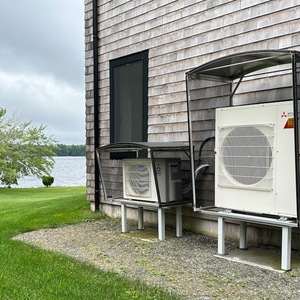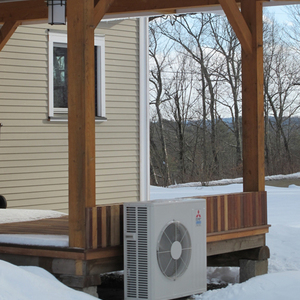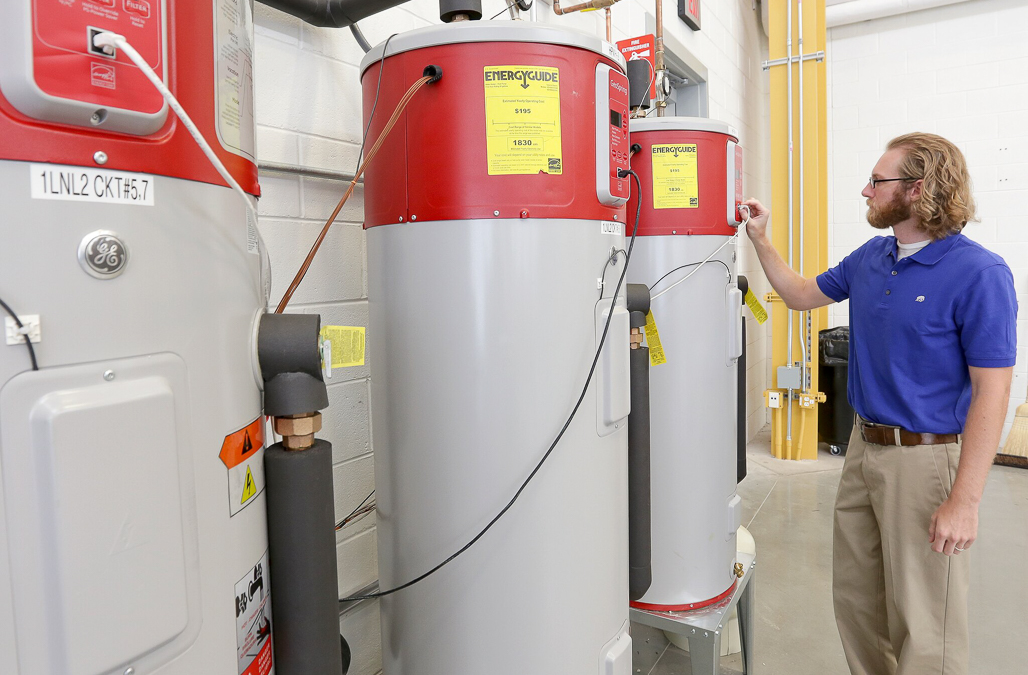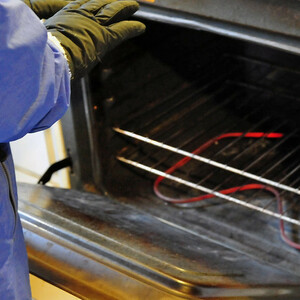
GBA reader ChrisStratton has plans to build a two-story, 800-sq.-ft. vacation home in western New Hampshire. In this recent Q&A post, he’s writes that he’s considering installing heat pumps, one on each floor, as the main heat source, supplemented by radiant heat in the bedroom and bathroom. But he’s concerned about the wisdom of relying solely on electricity, and he’s also looking for advice on whether to go with ducted or ductless heat pumps.
That’s the topic for this Q&A Spotlight.
What to do when the power goes out
Everyone seems to be in agreement that an electric system is a fine idea. That is, until the power goes out. As paul_wiedefeld is quick to point out neither a propane- nor oil-fired furnace will function without electricity—just like a heat pump. He suggests a wood stove as a backup.
Matty_bram’s advice is to install solar panels and a battery system to power emergency electric heaters. But, says Bill Wichers, any significant heat would require a substantial battery reserve. “For some perspective,” he writes, “a typical car battery size battery will run a typical 1500-watt space heater for around 15-20 minutes—not much.”
For long-term backup power, he suggests a conventional generator, or even a propane-fired heater that doesn’t require electricity.
Go with ducts
Paul_wiedefeld states that ducted heat pumps are more efficient for distribution, dehumidification, and filtration, plus once the ductwork is installed, it’s easier to incorporate future upgrades. When it comes to economizing, however, he recommends a ductless heat pump on the first floor and radiant baseboards on the second.
Akos agrees with Paul, and suggests installing a slim-ducted unit on the basement ceiling and running flex ducts to each room. But…
Weekly Newsletter
Get building science and energy efficiency advice, plus special offers, in your inbox.

This article is only available to GBA Prime Members
Sign up for a free trial and get instant access to this article as well as GBA’s complete library of premium articles and construction details.
Start Free TrialAlready a member? Log in















5 Comments
Thanks for this informative article.
My newfound understanding (gleaned here and "the papers") of the newest inverter heat pumps had me thinking that they run so efficiently that one could boost the At-Home set point several days in advance of arrival, if needed, without running up a big bill. A non issue, I'd have thought before reading this.
Any thoughts would be greatly appreciated.
BTW, I had a thought: a smart way to control a smart home's temperatures would be for the heat pump app to estimate how long it'll take to reach your AT-Home set point given the current inside temp and the outside temp as it trends up and down over day and night.
And someday soon they will just look at the current temps, knowing that the house had better be ready for people arrive on the weekends and just handle it.
Oh, and it'll also say how much you'll spend by looking at estimated KWH hours and your utility's rate and estimated time needed.
One issue that didn't really get resolved was back up heat for power failures. This is a holiday house which isn't occupied all the time. It would be interesting to hear some discussion around what options that leaves when there may not be someone there to switch heat sources, or stoke a fire.
I recommend careful design and execution of the plumbing system so the house can be drained down easily, eliminating the need for keeping the structure above freezing if no one is occupying it for long periods. This also relates to Malcom's comment that no one may be there to switch heat sources or stoke a fire.
Will a super insulated house actually get to freezing temps? I guess that might depend on where it is located.
A Passive House should never freeze, in any climate. Otherwise, "high performance" is too vague a term to know for certain whether a house will freeze.
Log in or become a member to post a comment.
Sign up Log in